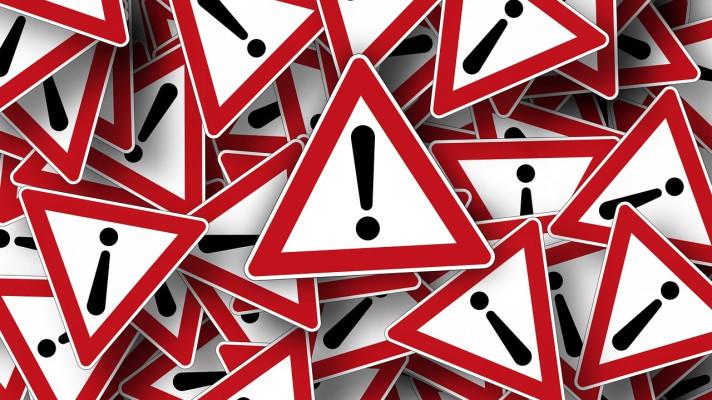Germany wades into EU chemicals debate
Germany yesterday got stuck into EU discussions on future chemicals policy,
urging that any new rules should protect not only the environment and health but
also Europe\'s chemical industries, a significant part of which is concentrated
in the country. Green group European environmental bureau (EEB) accused
chancellor Gerhard Schröder of siding with industry against stricter EU
environmental rules as he did in 1999 regarding the end-of-life vehicles
directive (ED 24/06/99). Germany\'s proposals on future EU chemical policies
were developed jointly by Mr Schröder\'s office and the German chemical
industry. They respond to an EU white paper on chemicals issued a year ago, and
also to the European Parliament\'s position on the paper expressed in November
(ED 15/11/01). According to the paper, the proposals are aimed at making
Europe\'s future \"Reach\" (registration, evaluation and authorisation) system
for chemical regulation practical as well as ambitious. In particular, it says,
the future of the sector\'s 36,000 small and medium enterprises must be
safeguarded. The paper demands simplification of the proposed authorisation
system for the most hazardous chemicals. All realistic possibilities to avoid
unecessary burdens on industry should be examined, it says. European green group
EEB responded harshly, accusing Germany of undermining the Commission\'s attempt
to reverse the burden of proof under which industry should prove particular uses
of dangerous chemicals are safe to gain market access rather than regulatory
authorities having to show that they are dangerous. According to the group,
Germany\'s plan would involve the Commission having to identify which uses of
dangerous chemicals should be forbidden, replicating exactly the same heavy
workload that has made the EU\'s \"existing substances\" safety review system so
unwieldy. The paper makes a series of other recommendations, including creation
of a new European chemical authority alongside a strengthened European chemicals
bureau. It agrees with the European parliament that persistent, bioaccumulative
and toxic chemicals (PBTs) and very persistent and very bioaccumulative
chemicals (vPvBs) should be included in the authorisation procedure. It further
suggests adding to this list highly sensitising chemicals and chronically toxic
substances. It urges exclusion from registration of substances produced at under
one tonne per annum from the scheme, but accepts simplified controls for these
chemicals. It explicitly rejects a call made by the European parliament for
deadlines for ending use of particularly dangerous chemicals of 2012 for those
in consumer uses and 2020 for others. On the other hand it accepts the idea that
any chemical for which deadlines under the registration procedure for delivery
of safety data are not met would be subject to a marketing and use ban. Zdroj:
ENDS
Germany yesterday got stuck into EU discussions on future chemicals policy, urging that any new rules should protect not only the environment and health but also Europe\'s chemical industries, a significant part of which is concentrated in the country. Green group European environmental bureau (EEB) accused chancellor Gerhard Schröder of siding with industry against stricter EU environmental rules as he did in 1999 regarding the end-of-life vehicles directive (ED 24/06/99).
Germany\'s proposals on future EU chemical policies were developed jointly by Mr Schröder\'s office and the German chemical industry. They respond to an EU white paper on chemicals issued a year ago, and also to the European Parliament\'s position on the paper expressed in November (ED 15/11/01).
According to the paper, the proposals are aimed at making Europe\'s future \"Reach\" (registration, evaluation and authorisation) system for chemical regulation practical as well as ambitious. In particular, it says, the future of the sector\'s 36,000 small and medium enterprises must be safeguarded.
The paper demands simplification of the proposed authorisation system for the most hazardous chemicals. All realistic possibilities to avoid unecessary burdens on industry should be examined, it says.
European green group EEB responded harshly, accusing Germany of undermining the Commission\'s attempt to reverse the burden of proof under which industry should prove particular uses of dangerous chemicals are safe to gain market access rather than regulatory authorities having to show that they are dangerous.
According to the group, Germany\'s plan would involve the Commission having to identify which uses of dangerous chemicals should be forbidden, replicating exactly the same heavy workload that has made the EU\'s \"existing substances\" safety review system so unwieldy.
The paper makes a series of other recommendations, including creation of a new European chemical authority alongside a strengthened European chemicals bureau.
It agrees with the European parliament that persistent, bioaccumulative and toxic chemicals (PBTs) and very persistent and very bioaccumulative chemicals (vPvBs) should be included in the authorisation procedure. It further suggests adding to this list highly sensitising chemicals and chronically toxic substances.
It urges exclusion from registration of substances produced at under one tonne per annum from the scheme, but accepts simplified controls for these chemicals. It explicitly rejects a call made by the European parliament for deadlines for ending use of particularly dangerous chemicals of 2012 for those in consumer uses and 2020 for others.
On the other hand it accepts the idea that any chemical for which deadlines under the registration procedure for delivery of safety data are not met would be subject to a marketing and use ban.
Zdroj: ENDS
Sdílet článek na sociálních sítích
